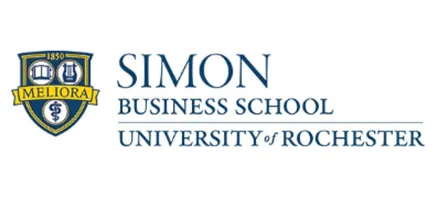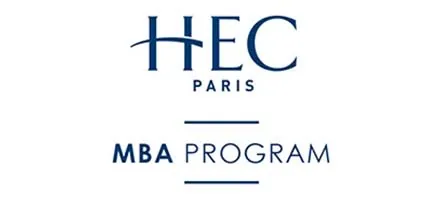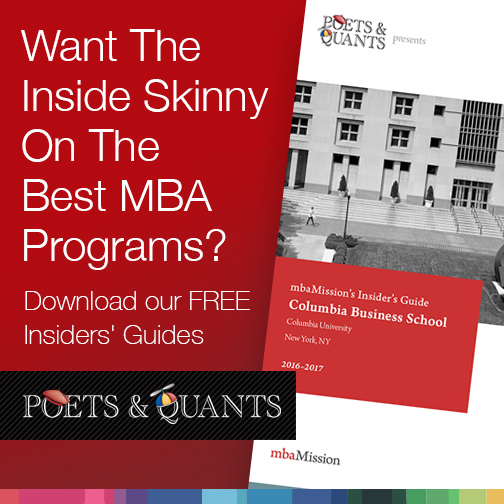Why am I writing about next year’s MBA application cycle when we are only at the end of the second round of this season? Because each year, the application cycle seems to begin earlier and earlier. We have only about 150 days until the schools start releasing their 2017–2018 essay questions and 250 days until Round 1 applications are due. You may have a lot to do between now and then, but do not panic. Here are some simple and methodical steps you can take now (and for some of you, right now!) to ensure that you are the best applicant you can be when that first deadline comes around.
Choose Your Standardized Test: Although the GRE and GMAT are now essentially equal in the eyes of virtually all admissions officers, they should not be equal in your eyes. Why not? Some MBA ranking systems factor a school’s GMAT average into their final assessment, but not its GRE. So, if you are convinced that no matter how hard you try, you will score below average on the GMAT, consider taking the GRE instead. If you ultimately do not do all that well, the schools may be less concerned about your score’s impact on their averages. If you believe you will do well on the GMAT, then take it—the programs are always happy to see applicants who can lift their averages and potentially improve their rankings. (Note; this is not to say that you will get in with a low GRE, merely that this is a better position relative to a low GMAT).
Start Studying For Your Chosen Test: Of course, studying for the GMAT or GRE is much harder than just choosing one or the other. Our partners at Manhattan Prep suggest that if you intend to take a preparatory course, plan to allot three months for the entire process—nine weeks for the class, plus an additional month of study after. This means that if you started today, you would take the test in early April. Maybe you anticipate needing to take the exam more than once? If so, your schedule may extend into May or even June. Some MBA programs release their essay questions as early as May, so unless you want to be managing your work, social life, test prep, community activities, and essays simultaneously, your test prep needs to start today.
Visit Your Target Schools: We created our series of Insider’s Guides to the top business schools (which Poets&Quants loved so much, it sponsored them!), and although they are incredible resources for learning about your chosen MBA programs, nothing beats actually visiting a school. Did you know that unless you visit your target program in the next few months, you will not have another opportunity to do so before submitting your Round 1 application? Many class visit programs do not begin until mid-October, and most first-round deadlines are in September or early October. Visiting your target schools can help you respond in a more informed and personal way to each program’s essay prompts and interview questions, not to mention that as a consumer, you should educate yourself as much as possible about this major investment, and seeing the environment firsthand can be a valuable part of that process.
Build Your Community Profile: Did you stop all your community activity after you graduated college? If not, continue your volunteer efforts throughout the coming months, because this is a rich and important facet of your MBA profile. If so, you thankfully still have some time to develop this part of your candidacy. You may run some risk of appearing as though you simply signed up for some volunteer work and punched the clock until August, but if you focus on having a significant impact on an individual or organization between now and application day—even within such a short window—no admissions officer will discount your contribution or results simply because they occurred within months of the application deadline. In short, if your participation is sincere and positively influenced a person or organization, the experience can help you in your MBA efforts.
Build Your Personal Profile: Many applicants think that the admissions committees are not interested in hearing about their personal lives, when in fact, the schools are actually quite eager to get to know you in a holistic way—which includes your personal accomplishments. Take this time to delve even more deeply into any hobbies or passions you have, and try to put some weight behind them and validate your talents. For example, if you are an amateur photographer and have been wanting to have an exhibit of your prints, take the necessary steps to make that happen in the short term. (And be assured that it does not need to be at the Museum of Modern Art—a local café is fine.) We are not saying that you should suddenly try to learn a new skill or master an unfamiliar hobby, but if you already have a passion to which you can make an extra commitment now, go for it!
Take Supplemental Classes: Perhaps you were a strong undergrad student but took mostly nonquantitative subjects. Or maybe you have a weak overall record and need to show some academic maturity. Or you generally did well in your past studies, but your weakest grades were all in quantitative subjects. If any of these statements apply to you, consider addressing this weak spot in your profile by taking a course in a quantitative subject now and making sure to earn an A grade (at least an A-). By taking an introductory class in statistics, calculus, economics, accounting, or finance—or preferably, two such classes—you could assuage any concerns the admissions committee might have about your ability to handle the quantitative workload that awaits you in business school. Keep in mind, however, that these decisions are case specific and can also involve other factors, including your GMAT/GRE performance and any designations you may or may not have achieved, such as the CFA. A good, inexpensive way to start a class is through a MOOC offered by a prominent business school (see P&Q’s monthly guide to the best business MOOCs).
Develop Your Career Goals: Most schools still ask applicants to discuss their post-MBA short- and long-term goals, but beyond just having a goal, you need to have a credible goal. Now is the time to thoughtfully and comprehensively consider your professional aspirations, if you have not already done so. Contact individuals in your target industries or positions for informational interviews, and consider job shadowing one or two. In short, educate yourself well about your target field or role, and determine as definitively as possible what appeals to you about your choice and why it is the right one for you. This will position you to present your goals in a credible and convincing manner. Very simply, if an admissions committee does not believe that you understand and can achieve the aims you have set for yourself, it will not admit you. But if your target school can clearly perceive your excitement about your goals and feels assured that you will actualize them, you will be a step ahead of your fellow applicants—and every step matters in this competitive process.
Jeremy Shinewald is founder and President of mbaMission, a leading MBA admissions consulting firm. You can read more about Shinewald and his firm in our MBA admissions consulting directory.
ABSOLUTELY FREE: MBA Insider’s Guides To The Top 16 Business Schools
















